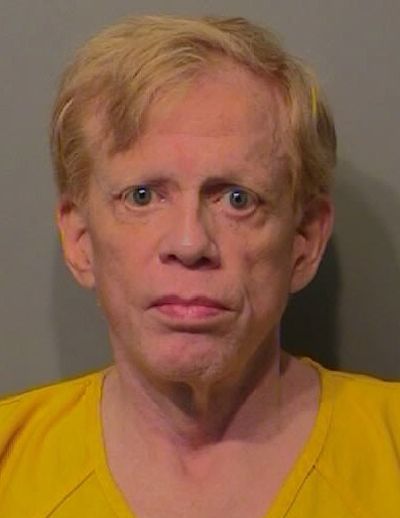Setback for Steele’s bid to challenge FBI tapes

BOISE - Edgar Steele’s defense won’t be able to call two expert witnesses it lined up to question the authenticity of FBI tapes of Steele talking with Larry Fairfax about an alleged murder-for-hire plot against Steele’s wife, Cyndi, a federal judge in Boise ruled Thursday.
The testimony and expertise from one proposed expert was unreliable, U.S. District Judge Lynn Winmill found, and the qualifications and testimony of the second were irrelevant, at least at this point.
Steele, a self-described “attorney for the damned” who’s represented clients including the Aryan Nations, goes to trial on Tuesday on four felony charges related to an alleged murder-for-hire plot to kill his wife and mother-in-law; he faces up to 30 years in prison.
Cyndi Steele’s lawyer, Wesley Hoyt, is the one who contacted the proposed experts and sent them the FBI tapes. “Mrs. Steele believes that the tapes were manipulated,” he said after the judge’s ruling Thursday. “The victim is totally supporting the accused. She believes in his innocence.”
The case began last June when Fairfax told the FBI Steele had hired him to kill his wife and mother-in-law, and paid him $10,000 in silver coins plus $400 in travel expenses to Oregon, where Steele’s mother-in-law lives, plus a promise of another $125,000. A week later, Cyndi Steele took her car in for an oil change and workers found a pipe bomb attached to its underside.
Fairfax pleaded guilty to federal weapons charges in October and is in jail awaiting sentencing; he could get up to 10 years in prison.
Steele, wearing a bright-orange Ada County Jail-issue sweatshirt and scrubs, sat silently through the day-and-a-half pretrial hearing Wednesday and Thursday, speaking only in whispers to his lawyers.
Dennis Walsh, a former New York City detective who said his opinion was that the tapes had been edited, wasn’t qualified to offer that opinion, Winmill ruled. “I just have to conclude he does not have the background and experience,” the judge said, ruling from the bench.
Prosecutors questioned inflated claims on Walsh’s resume, noted that key portions of his report duplicated the report from the other proposed expert witness verbatim, and pointed out that Walsh had no education or certification as a forensic examiner.
Plus, an electronics engineer and certified forensic examiner for the FBI reviewed Walsh’s work and reached opposite conclusions. “There were no signs of tampering,” FBI forensic examiner Dave Snyder, who works at the agency’s Quantico, Va. lab, told the court. “We didn’t feel that their conclusions were accurate.”
A second expert witness, George Papcun, who holds a PhD in acoustic phonetics, testified that he examined the recordings and found unexplained anomalies that could have been triggered by editing, or by other factors including electronic glitches. “This recording does not contain what was being picked up and only that,” Papcun told the court. But he said he wouldn’t use the term “suspicious,” because a variety of factors could have caused the glitches he observed.
Papcun, whose was long employed by the Los Alamos National Laboratory and whose resume shows work on the Jon Benet Ramsey trial, work on recordings for Paula Abdul and work for the Associated Press on the O.J. Simpson trial, said he spent less than a day examining the recordings, which he termed “of poor quality.”
Snyder, who said the recordings were made on a device that’s been standard for the FBI since the 1990s, called them “very clear” and said, “I felt that it was of fair quality.”
He said when he tested the recordings in their original format, he found no anomalies. When he used the uncertified, Russian-made testing program that Walsh used, he found anomalies similar to those cited by Walsh, but Snyder said the program is unreliable - and that’s why the FBI doesn’t use it.
Steele’s attorney, Robert McAllister of Englewood, Colo., told the court, “The government has the burden of establishing authenticity.”
But Winmill said the way that’s normally done is by having people whose voices are on the tape testify as to whether they accurately represent what was said - and that’s something Fairfax can testify about in the trial. If questions arise during that process, he said, it’s possible that Papcun’s analysis of the tapes could become relevant and he could then be allowed to testify.
But short of those questions, the judge said, Papcun’s testimony about the quality of the tape being impacted by one of many possible factors wouldn’t satisfy legal standards for expert witnesses regarding “whether it’s helpful to the jury - which really is the court’s central concern.”
Winmill said any value from Papcun’s testimony at this point would be outweighed by “confusion of the issues and potential of misleading the jury.”